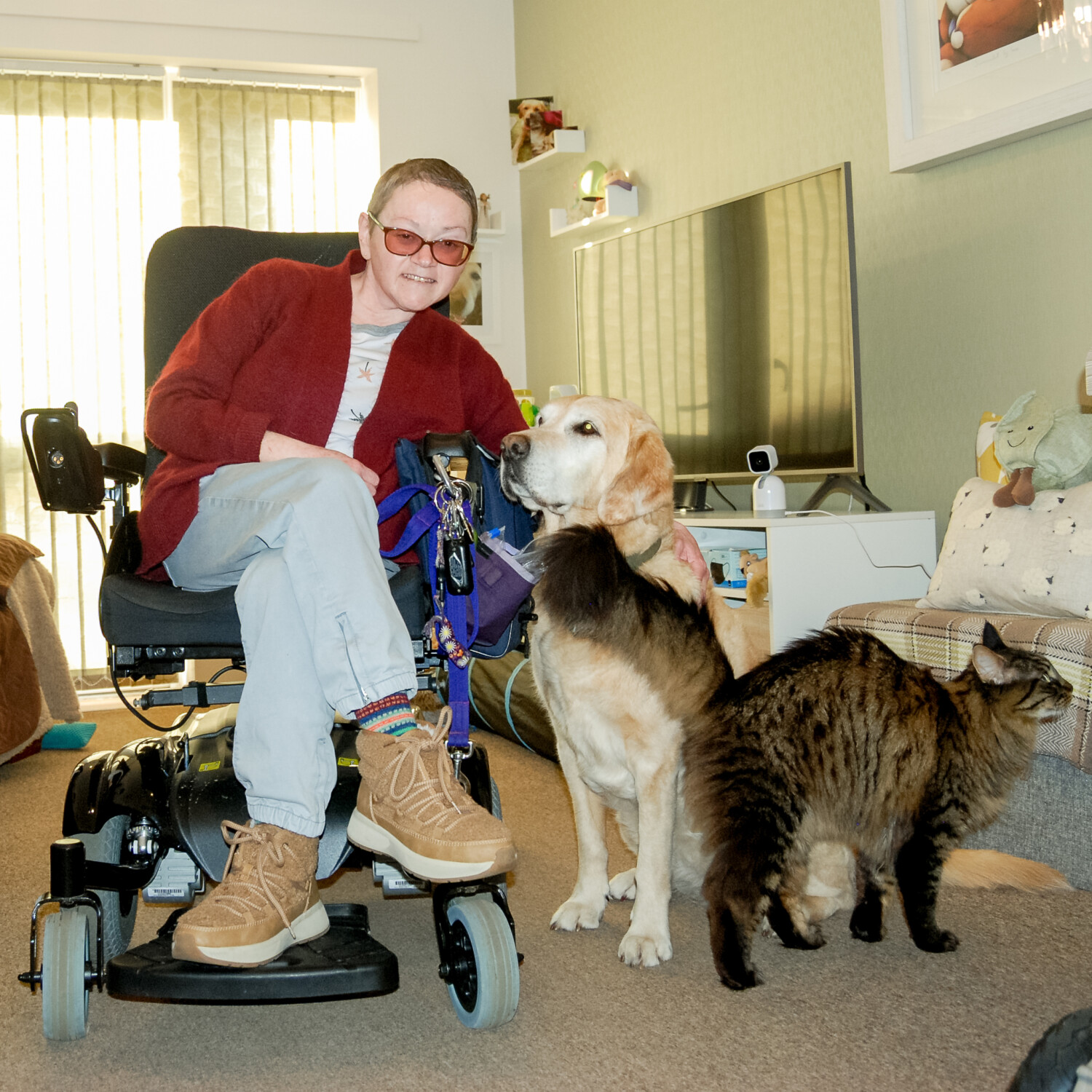Debbie's story

Introduction
Debbie has a condition called mitochondrial disease; it is a progressive degenerative neurological disorder affecting every cell in her body. She has been wheelchair bound since for the past 23 years. The disease can affect her immune system and leaves her susceptible to many infections.
Debbie also has type 1 diabetes and dystonia; she also became clinically blind in 2011. Over the last three years she has lost feeling in her hands and partially in her feet. Debbie needs support for her personal care, to assist with personal hygiene and activities such as cooking or shopping.
Debbie explains: “My home care worker assists with anything that requires fine motor skills like buttons and zips. I am also supported to have a shower and wash my hair”.
Debbie’s support makes her feel empowered giving her a degree of independence. This gives Debbie the confidence to push for a more fulfilled experience
What matters to Debbie?
It is important to Debbie that she is treated with dignity and respect.
Debbie says: “Some home care workers are far more suited to the role, and this can impact on my life. Without the support I receive I would be virtually house bound and unable to do basic tasks”.
Debbie cannot be spontaneous because of her condition; all her friend’s houses have steps to their buildings so are inaccessible. Staying in touch with friends is very important to Debbie but visits need to be planned.
There are occasions when her illness really impacts her physical and mental well-being. When she is unable to meet up with friends, this leaves her very isolated and lonely.
Debbie says: “I want to be seen and not ignored by society, as I have dreams and ambitions; I just want the same opportunities as my peers”.
Debbie’s has a care plan it is reviewed every six months. She has an opportunity to raise and voice any concerns she may have on her plan. Including an input how the care is implemented.
Referenced to WJEC GCSE Health, Social Care and Childcare
- Part 1.1 Physical factors affecting growth, development and well-being.
- Part 1.3 Active participation in care.
- Part 2.1 Care provision in Wales.
- Part 2.3 Indicators of health, risks to health and well-being.
Teachers support
- What are the symptoms for Type 1 diabetes and dystonia?
- Identify two reasons why friendships are important.
- What is Debbie’s target age category?
- Find two further career cards who could also support Debbie.
- How can the care plan support further well-being for Debbie?